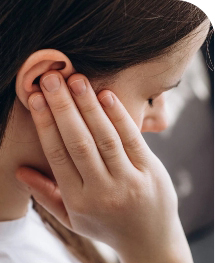Will The Fireworks This NYE Ruin My Hearing?
With 2024 only hours away, millions of people around Australia will be
Over 10,000 Patients Seen. That's over 20,000 Ears of Experience. Don't leave your ears just to anyone. Leave it to the Professionals.


Experience swift relief with our same-day appointment availability, ensuring you receive prompt and efficient care when you need it most.
Access our specialised services directly, without the need for a GP referral, simplifying your path to better ear health.
For those unable to visit our clinic, we offer convenient home visits, bringing our expert ear care services right to your doorstep.


Happy Patients
Safest Earwax Removal Procedure..

Ear Suction Clinic stands as Perth's premier choice for those seeking a safer, gentler, and more effective solution to problematic ear wax.
We offer an alternative that prioritises your comfort and health, ensuring you no longer have to endure the discomfort of blocked ears or the inconvenience of multiple GP visits.
Our specially trained Microsuction Clinicians have undergone the very best nationally accredited training for safe wax removal developed in collaboration with ENTs and the Institute of Health and Nursing Australia(IHNA) to ensure your next wax removal experience will be both safe and comfortable.
No GP referrals needed
Cleans ears in minutes
Safe and Comfortable
For patients of all ages
Stay updated with the latest advancements and insights from Ear Suction Clinic.
With 2024 only hours away, millions of people around Australia will be
Water and wax have had a love hate relationship over the years.
If hot weather melts normal wax (e.g the stuff candles are made